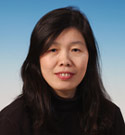
- This event has passed.
Practical Considerations for Power-Aware Real-Time Scheduling
June 4, 2004 @ 11:00 am - 12:00 pm PDT
Practical Considerations for Power-Aware Real-Time Scheduling
| Speaker | Professor Sharon Hu Department of Computer Science and Engineering University of Notre Dame |
|||
| Location | McDonnell Douglas Auditorium | |||
| Date & Time | June 4 , 2004 Refreshments at 10:30am, Lecture begins at 11:00am |
|||
| Abstract | Real-time embedded systems are prevalent in many applications such as computing and communication appliances, various transportation vehicles, and medical instruments. A common feature of these systems is that their performance is largely dependent on how well the timing constraints are met. Besides timing requirements, power consumption is becoming a major consideration in real-time embedded system design as VLSI technology continues its remarkable advances. Techniques to minimize power/energy consumption while satisfying the stringent timing constraints are critical to successful deployment of such systems.The focus of this talk is on the scheduling aspect of hard real-time systems implemented on processors with dynamic voltage scaling (DVS) capabilities. Scheduling to guarantee real-time demands can be a difficult problem. DVS processors introduce a new dimension to the problem. Including realistic considerations, such as the overhead of transitioning from one voltage level to another, brings yet more challenges. Research results in this area have largely ignored the limitations of practical DVS processors. This talk will discuss several recent results on dealing with non-ideal features of DVS processors for hard real-time systems. |
|||
| Biography |
Xiaobo Sharon Hu is an associate professor in the department of Computer Science and Engineering at the University of Notre Dame, Notre Dame, Indiana. She also holds a joint appointment in the department of Electrical Engineering at the same university. Her research interests include hardware-software codesign, real-time embedded systems, low-power system design, VLSI design algorithms, and computer-aided radiation treatment planning. She has published more than 80 papers in these areas and obtained a number research grants from both government and private industry. She was the Technical Program Co-Chair of the 9th International Symposium on Hardware/Software Codesign (CODES’2001) and the General Co-Chair of the same conference in 2002. She has been invited to serve on the program committees of a number of conferences in the electronic design automation field such as DAC, ICCAD, DATE, ICCD, CODES, CASES, etc. In 1997, she received the NSF’s Faculty Early Career Development (CAREER) Award. A paper co-authored by Sharon Hu and her student received the Best Paper Award from the 38th ACM/IEEE Design Automation Conference in 2001. |
Practical Considerations for Power-Aware Real-Time Scheduling
click on the thumbnails to view the full-sized images
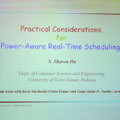 |
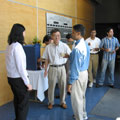 |
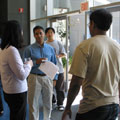 |
 |
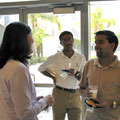 |
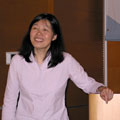 |

